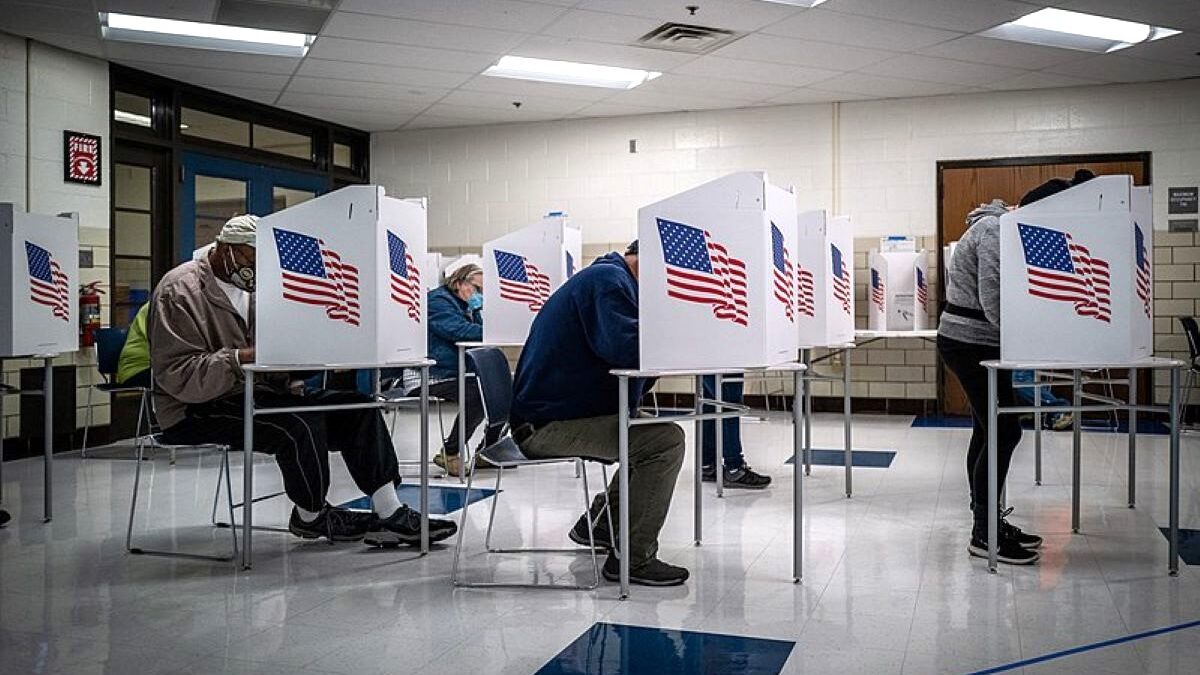After flooding local election offices with private money to alter election operations in key battleground states ahead of the 2020 presidential contest, Democrat-aligned groups have been looking for new ways to take over America’s future elections — and a new bombshell report reveals just how they plan to do it.
Released by the Honest Elections Project (HEP) and the John Locke Foundation, the shocking report reveals how the U.S. Alliance for Election Excellence — a self-professed “nonpartisan collaborative” claiming to bring together election officials for the stated goal of developing “a set of shared standards and values” — is actually a venture by left-wing nonprofit groups to “systematically influence every aspect of election administration” and advance Democrat-backed voting policies in local election offices across the country.
The Alliance’s efforts are similar to those orchestrated by groups such as the Center for Tech and Civic Life (CTCL), which, after receiving $400 million from Meta CEO Mark Zuckerberg, poured millions of dollars into local election offices to change how elections were administered in the lead up to the 2020 presidential election. As The Federalist previously reported, these “Zuckbucks” were used to expand unsecure election protocols like mail-in voting and the use of ballot drop boxes. To make matters worse, the grants were heavily skewed towards Democrat-majority counties, essentially making it a massive Democrat get-out-the-vote operation.
Unsurprisingly, CTCL is one of the main groups partnered with the U.S. Alliance for Election Excellence.
While CTCL’s actions in the 2020 election were intrusive enough to provoke 24 states to pass laws banning or restricting Zuckbucks, the Alliance seeks to take CTCL’s election-interfering tactics a step further. According to membership and grant agreements obtained by HEP, the Alliance’s “unusual and complex structure” appears to be “designed to thwart meaningful oversight and accountability.”
“For instance, after the Alliance had recruited its first cohort of members it announced plans to begin charging offices to join. However, the Alliance also created ‘scholarships’ to cover those membership costs, which are instantly converted into ‘credits’ that member offices can use to buy services from CTCL and other Alliance partners,” the HEP report reads. “As a result, offices receive access to funds they can spend exclusively on services provided by left-wing companies and nonprofits, entirely outside normal public funding channels.”
In other words, existing Zuckbucks bans wouldn’t necessarily prevent local election departments from contracting with the Alliance to obtain services ranging “from ‘legal’ and ‘political’ consulting to public relations and guidance on recruitment and training.”
Such services are already being utilized in places such as Brunswick County, North Carolina, where the locality’s board of elections director used “talking points and hyperlinks provided by the Alliance” to push back against criticism of the county’s acceptance of CTCL funds. In a series of emails obtained by HEP via public records requests, Board of Elections Director Sara LaVere is documented defending the acceptance of the grants and admitting that The Elections Group — an Alliance partner — assisted her in writing articles published during the 2022 election cycle.
“I have personally worked with the Center for Tech and Civic Life, Democracy Fund, Elections Group, and the Center for Civic Design in the past,” LaVere wrote. “The two election columns I published for this election? Those were written with assistance from the Elections Group. Most of my social media posts during the general election came from templates provided by the Elections Group.”
Legislation banning Zuckbucks and other types of private funding in North Carolina’s elections successfully passed the Republican-controlled legislature in 2021, but was vetoed by Democrat Gov. Roy Cooper.
But Alliance doesn’t provide its “benefits” to local election offices without expecting something in return. As described in the report, election departments that become Alliance members “are expected to work with the [coalition] to develop and implement an ‘improvement plan’ that reshapes the way each office functions.” This requirement allows the Alliance to gather significant data on the internal operations of participating offices.
“No matter what it claims to be, the U.S. Alliance for Election Excellence is nothing more than a dark money-fueled scheme to push liberal voting policies and influence election administration in key states and localities,” said HEP Executive Director Jason Snead in a statement. “Nobody should be able to manipulate the democratic process for partisan gain. … This report should make clear that a private funding ban, vigorous oversight, and complete transparency from officials are essential to restoring trust in our election system and making it easier to vote and harder to cheat.”
To date, the Alliance-connected CTCL has committed to distributing $80 million to 10 counties (including Brunswick) over the next five years in states such as Nevada, Wisconsin, and Michigan, among others.







